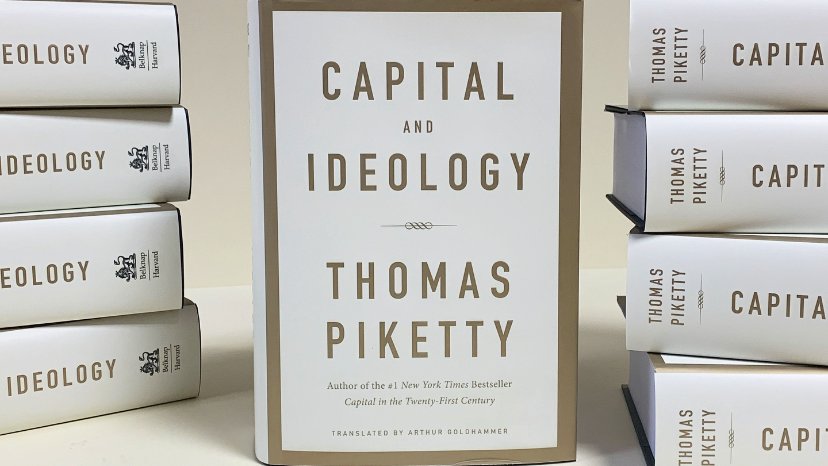Capital and Ideology – a book review
A Review of Thomas Piketty’s Capital and Ideology
September 21, 2021
When French economist Thomas Piketty published his tome on income inequality, Capital in the 21st Century, it was hailed as the successor to Das Kapital and the most explosive book to reach his field in memory, selling millions of copies and reaching the New York Times Best Seller list. The established world of economists hailed it as a transformative work that had a novel thesis which succeeded in grappling with core tenets of capitalism and in its explanation of the failures of modern economics in understanding how inequalities are formed. The book represented a new era of thought on economics and policy, and his latest work, Capital and Ideology, now out two years (sorry, it was long!), only expands his thesis and reinforces his core argument with historical analysis and a vision for the future.
Just like Capital in the 21st Century, it provides a clear rebuke of the propertarian, hyper-capitalist status quo, but Piketty goes deeper into his vision for the future and chronicles the history of wealth, inequality, and slavery through time. Piketty expands the scope of his research from an actionable economic theory to a world-explaining theory that encompasses history, sociology, and economics.
Piketty delves into historical records like Burke’s Peerage, books from authors like Jane Austen, and tax records from the Ancien regime in France to explain how inequality expanded during the transition from tri-functional societies to capitalist propertarian societies. Accepting criticism on his last book, Piketty dives into slavery and colonialism’s ideology and economic logic.
As the name suggests, Capitol and Ideology is explicitly political. Piketty believes that inequality is a political problem that exists only because society allows elites to justify their hoarding. In the latter half of the book, the economist turns to punditry and theorizes on why the social-democratic parties of the 20th century failed to keep power and why their voters fled as the parties turned to third-way neoliberalism.
Much of Piketty’s work and conclusions are theoretical and a work in progress. They are by no means conclusive and are not a quick fix to save society from inequality, yet Piketty provides irreplaceable insights into how inequality fundamentally functions. The lesson of Capital and Ideology is not in Piketty’s stated solutions (though they are good theories), or his political analysis (which is too simple for reality), but his examination of history.
Piketty remains my favorite economist, even with the book’s shortcomings. He confronts societal problems with intersectionality and proposes a new way of examining economics: without formulas that distract from the inherent ideological and political structures that cause or influence economic outcomes. Because of his ability to mix history, politics, sociology, and to create clear economic theories, Piketty earns the “least out of touch economist” label in my head. As for his book, I heavily recommend it for anyone ready to embark on an incredibly detailed and informative journey and who has time to read north of a thousand pages.

















